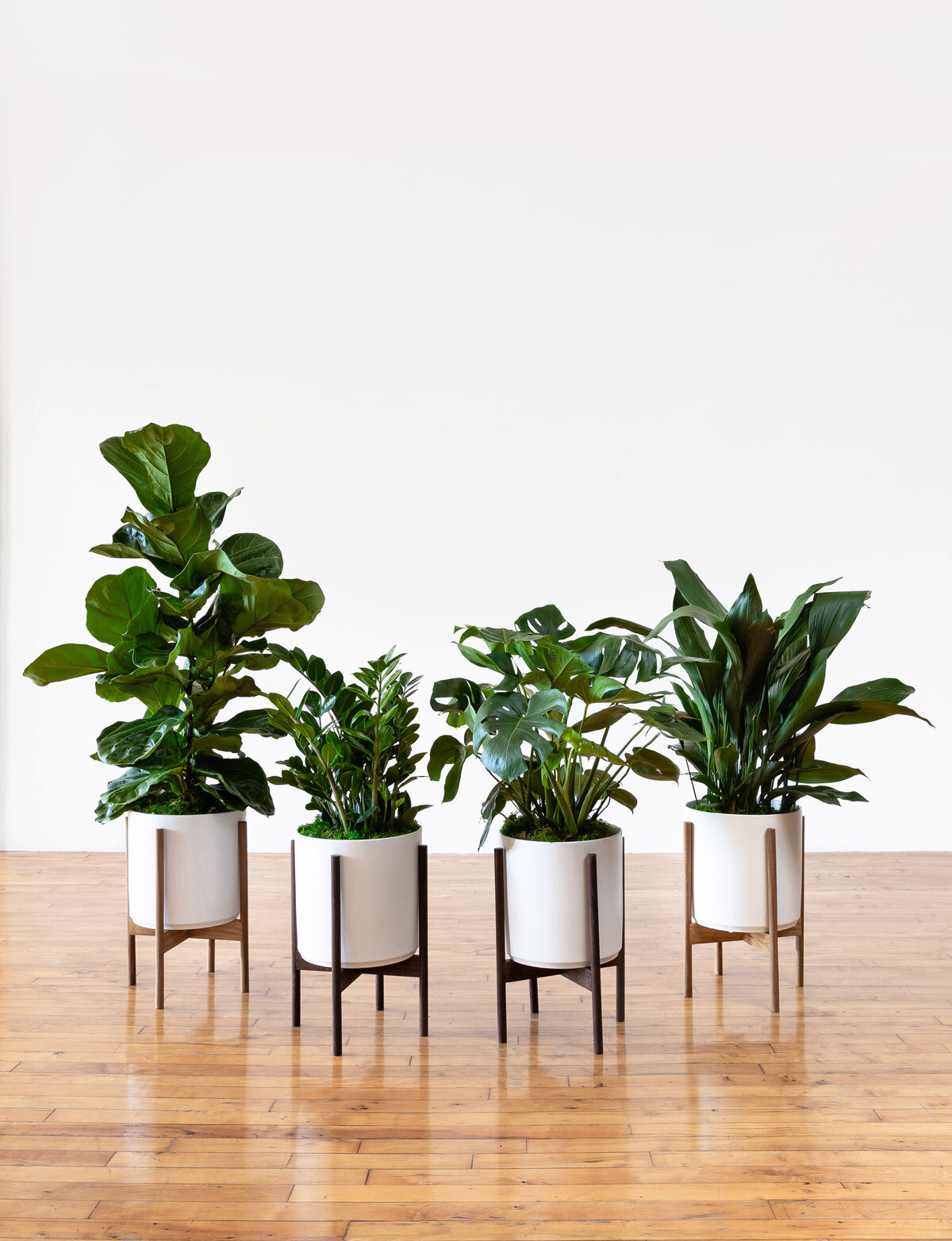Don't Panic! How Plants Adjust To Summertime
Summer is here, and you can probably feel the weather begin to warm up. Perhaps the air is feeling a bit dry, or you’ve caved in and turned on the air conditioning (we have, too!).
Our houseplants experience changes during seasonal shifts just like we do, but caring for them during the sunniest season doesn’t have to be stressful. Read on, and be soothed! Like you, your plant doesn’t have to get a sunburn (or any other ailment for that matter). An ounce of prevention is worth a pound of cure! Here are a few things to look out for when caring for your plants in the summer.
Drooping Leaves
Alarmed because your perennially perky plant is exhibiting sulky, drooping foliage? Don’t worry, you didn’t offend them! They’re probably just thirsty. During the warmer months of the year, your plant’s moisture evaporates more quickly from its soil, so you may need to water it more frequently than you would in fall and winter. Check your plant’s moisture levels by sticking your finger in its topsoil (the 1-2 inches of soil below its layer of decorative moss) or by using a moisture meter, and be sure to water it whenever that soil layer is dry. Be in the habit of probing your plant regularly, because its moisture intake will ramp up as the temperature rises.
Seasonal Plant Pests
As far as we know, no houseplant owner enjoys finding bugs on their green companions. They can be unnerving, gross, and yes, they can bug you out. But it’s a fact of life that when it’s summertime, and your plants are lookin’ good insects may be tempted to move into that palatial new home!
Don’t panic— there are solutions!
The first, which we employ daily at our headquarters, is our organic Black Soap spray. This all-natural soap is a potent insecticide, even as it shines your plant’s leaves and boosts its health by allowing it to photosynthesize with ease.
The second option, and you can opt to use both simultaneously, is neem oil. Neem oil is an all-natural pest repellent and eradicator extracted from--you guessed it--the neem tree! By diluting neem oil in water and spraying it on your plant’s foliage and soil, you’ll eradicate pests without harming your plants. Other insecticides can work wonders as well, and many treat pests at the source: deep in the soil. Don’t be afraid to ask an associate at your local nursery or home supply store to guide you toward an effective indoor houseplant insecticide if you feel you need an instant fix.
Pests like spider mites love warmer temperatures and can be more commonly seen in summer.
Air Conditioning Distress
Don’t get us wrong, we love the AC (we live in SoCal!) And we understand that air conditioning is a necessary evil for many of us. But it can create issues for houseplants, so it’s important to give them extra care during the AC season. Air conditioning can sap much of the natural humidity out of your home environment’s air, causing your plants to become dry and experience yellowing or browning foliage. This should be combatted on two fronts: first, by diligently checking the moisture of your plant’s soil, as it will compensate by drinking more even as the dry air causes the soil’s moisture to evaporate. Secondly, this dryness should be countered by misting your plant regularly.
Misting is a fun, safe way to commune with your plant and give it the humidity it’s missing. So mist away, and enjoy this plant care ritual!
A Note On Drafts
It’s important to mention that in addition to lowering your space’s humidity overall, direct drafts can irritate your plant. Being faced with a constant barrage of cold, dry air is ideal for no one- and your plants are no exception. So during the summer, make sure that all houseplants are moved away from the path of direct drafts. If you’re concerned that this might alter the amount of light they receive, consult our light guide for guidance on the best spot for your plant based on its lighting requirements.
For a full list of summer plant care tips, head this way. And remember—the key to successful plant ownership is patience because after all, plants are living things that adapt and change to their environments, just like us!
Easy Care Plants, Delivered
Beautifully potted plants, plus lifetime plant care support. Order online at leonandgeorge.com


